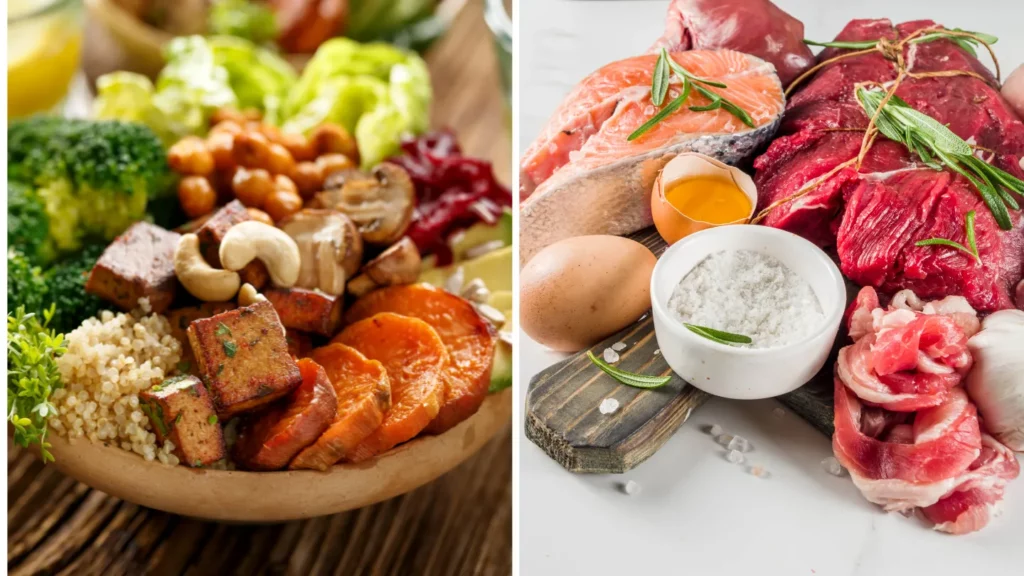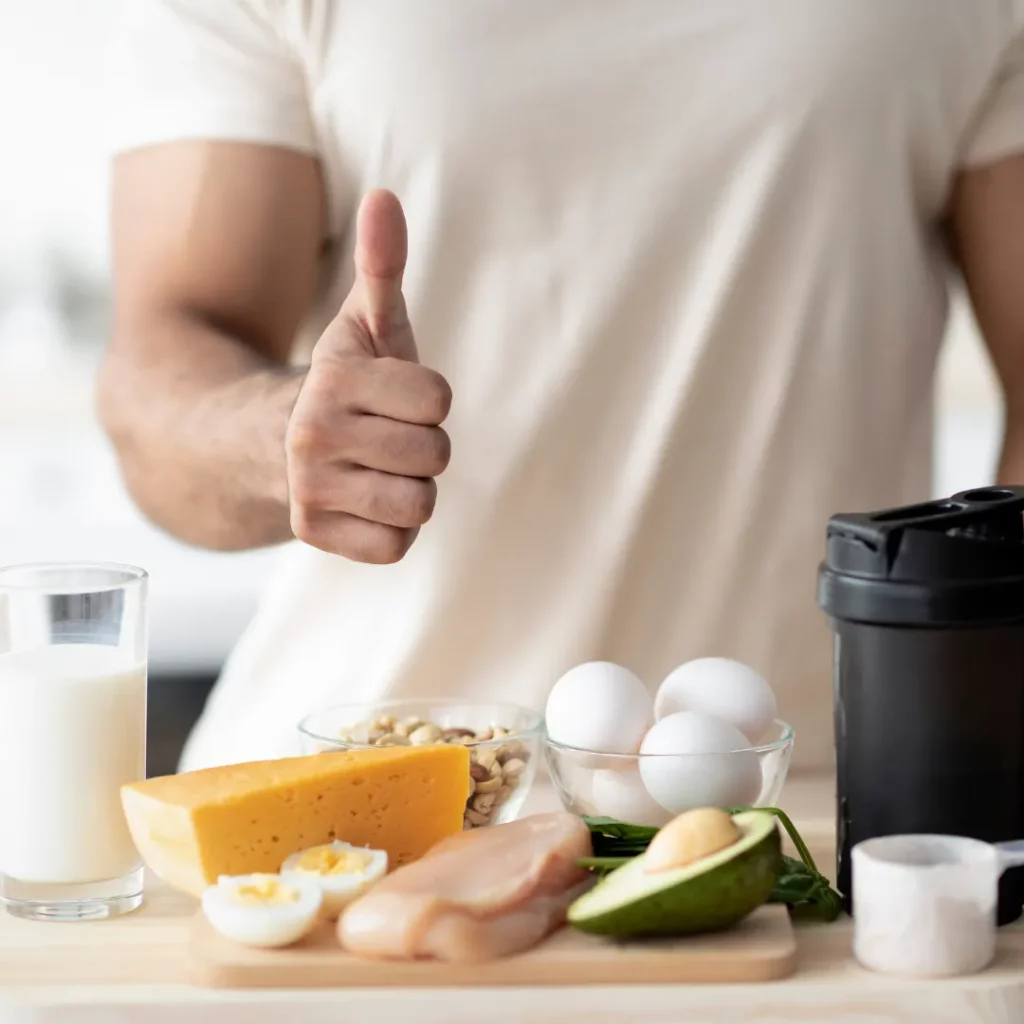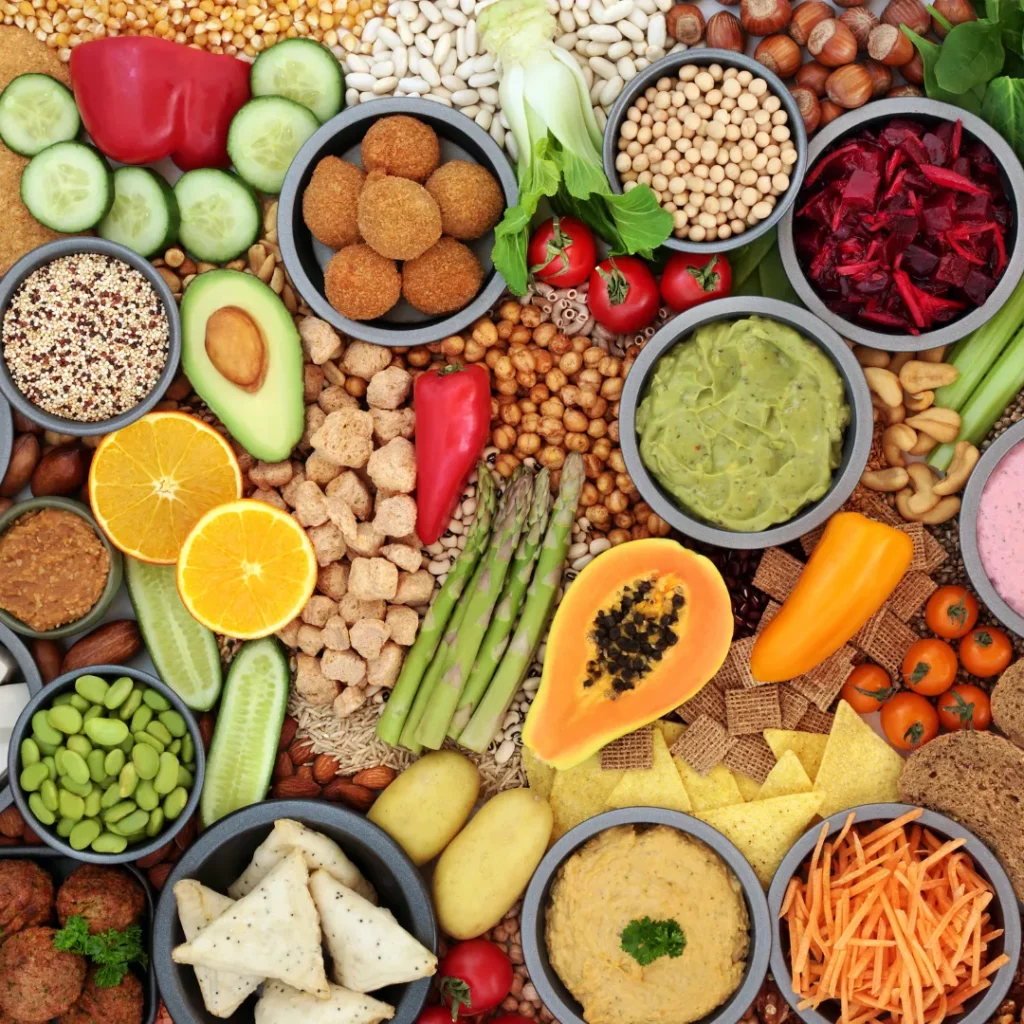Identical twins Hugo and Ross Turner, known for their adventurous travels, embarked on an intriguing 12-week experiment from January to March 2020 to compare the effects of two contrasting diets—vegan and omnivorous.
The brothers believed that their genetic similarity would make their experiment a valuable source of insight into how different diets impact physical performance and overall well-being.

To ensure fairness and eliminate any potential bias, the twins followed identical fitness training routines throughout the experiment.
Ross, a personal trainer, created a rigorous endurance-focused program, which he structured to be followed five to six days a week.
The meals were meticulously prepared and supplied by Mindful Chef, ensuring that both twins consumed nearly the same daily calorie intake.
Hugo adhered to a strictly plant-based diet, while Ross chose a more diverse approach that included both plant and animal products.
Researchers at King’s College London carefully monitored their progress, tracking key health metrics such as weight, cholesterol levels, and muscle mass throughout the study.
Over the weeks, Hugo, who was on a vegan diet, began to notice some intriguing changes.

One of his most noticeable changes was an increase in energy levels during his workouts.
He reported feeling an increase in energy and mental clarity during his gym workouts.
His snacking habits transformed; he moved from eating biscuits and chips to opting for more nutrient-dense, plant-based choices like fruits and nuts.
This shift had a profound impact on his overall well-being.
One of the most striking changes for Hugo was his considerable weight loss.
He began the experiment weighing approximately 185 pounds with a body fat percentage of 13%.

By the end of the 12-week period, he weighed 181 pounds, and his body fat percentage had decreased to 12%.
Throughout the experiment, his cholesterol levels showed a significant improvement.
However, a downside to his new diet was a noticeable decrease in his libido, which he attributed to his vegan lifestyle.
Meanwhile, Ross, who followed an omnivorous diet, observed a range of outcomes.
He gained 10 pounds of muscle, but his body fat also rose, reaching 15%.
In a notable development, Ross’s cholesterol levels remained stable throughout the experiment, marking a clear contrast to Hugo’s experience.
Although Ross valued the increase in muscle mass, the rise in body fat raised concerns about the long-term impact of an omnivorous diet on his overall well-being.

Hugo’s transition to a vegan diet resulted in significant changes to his gut microbiome, the community of beneficial bacteria living in his digestive system.
An analysis of a fecal sample by Atlas Biomed revealed that Hugo’s gut microbiome has experienced changes that could enhance his resilience against chronic conditions such as obesity and type 2 diabetes.
The twins noted a reduction in the diversity of microbes in their gut, which is often linked to a decreased ability to manage conditions such as Crohn’s disease.
While the findings were insightful, both Hugo and Ross acknowledged that a 12-week period was relatively short for a comprehensive dietary study.
They expressed a desire to repeat the experiment with an extended duration, potentially ranging from six months to a year, to obtain more precise and comprehensive data.
Despite the challenges, the experience was eye-opening, leading both Hugo and Ross to a shared recognition of the benefits of plant-based foods.

In a forward-thinking move, they set out to incorporate more plant-based options into their meals.
As the experiment concluded, the Turner twins reached a key conclusion: neither the vegan nor the omnivorous diet emerged as the clear winner.
Both diets offered unique benefits, and they concluded that the optimal approach would be to find a balance between plant-based and animal-based foods.
For those considering a vegan lifestyle, Hugo and Ross recommended starting with small changes, like replacing snacks with vegan alternatives.
Their experiment aimed to inspire others, particularly dedicated meat-eaters, to broaden their culinary horizons and explore the benefits of plant-based alternatives.
The Turner twins’ bold experiments include their impressive dietary explorations.
They are renowned for pushing the boundaries of human endurance, with achievements such as climbing Mount Elbrus in 2015 and recreating Sir Ernest Shackleton’s 1914 expedition to Greenland using antique equipment.
The brothers’ latest venture highlights the remarkable adaptability of the human body, whether it’s confronting extreme climates or adapting to dietary changes.
The growing debate around veganism versus omnivorous diets is becoming increasingly popular, and the twins’ experiment offers a fascinating perspective.

It suggests that a balanced diet, including both plant-based and animal-based foods, might be crucial for achieving optimal health and performance.
Their findings align with global eating patterns known for promoting longevity and overall health, such as the Mediterranean diet and the mostly plant-based diet of the Okinawans in Japan.
These diets underscore the essential role of vegetables and fruits as key components of a healthy lifestyle.
For those contemplating a shift to a vegan lifestyle, the Turner twins’ experiences reveal that even small changes—like increasing plant-based foods and reducing processed items—can lead to significant health benefits.
Although the experiment lasted only 12 weeks, the insights gained about nutrition, fitness, and the body’s remarkable adaptability are expected to have a lasting impact that extends far beyond this dietary trial.
Feature Image Credit: (Canva)





